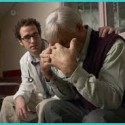The Threads of Addiction
Many people have features of an addictive personality. They heed the call to the “pleasure center,” located in the frontal lobe of the brain. As many individuals yield to the urges and cravings of the pleasure center, negative beliefs and behaviors reinforce the need to continue self-defeating addictive patterns.
Beneath the addiction, one finds personality characteristics which sustain the addiction. According Charlie Whitfield, an author on addictive behavior, these characteristics are common to all addictions. People most likely experience problems with trust, dependency, abandonment, shame, guilt, and the expression of deep feelings. Once the addiction is uncovered, these issues must be addressed through group addiction’s meeting or individual therapy. Often adults whose parents were alcoholics choose to attend Adult Children of Alcoholics (ACA) meetings in order to resolve the fallout from family behavior. Family members can be affected by addictive behavior and may adopt behavioral characteristics similar to the addict.
Addictive behavior lies on a continuum. For some, the tendency to compulsively engage in a particular behavior may not affect everyday functioning. For example, many people may engage in a pattern of ritualistic jogging. This may be considered a positive addiction because the activity promotes physical fitness and can release endorphins which elevate one’s mood and behavior. If, however, the jogger begins to dismiss friendships, social activities and responsibilities in order to sustain the jogging pattern, then the activity takes on a different meaning. Furthermore, many joggers may become so obsessive about their interest that they begin experiencing significant weight loss, making them appear too thin and fostering body misperception problems.
People struggle with addictive patterns such as weight gain, gambling, sexual addictions, eating disorders, compulsive shopping and self-cutting. I am merely providing a brief list of addictive behaviors. A comprehensive list is too exhaustive to print.
Many people ask me, “Are there any common characteristics or features that link all of the various addictions into a pattern? The following is my perception of the common threads that link all addictive behaviors:
* Addictive behaviors are an attempt at avoiding unpleasant and painful experiences.
* Addictive urges and cravings are triggered by underlying self-defeating beliefs.
* People with addictions experience masked emotional problems such as anxiety, depression and obsessive-compulsive characteristics.
* Addictions tend to be fueled by thwarted anger and self-blame, particularly among adolescents. Shame-based beliefs and feelings are at the core of all addictions.
* The primary purpose for addictive behavior is to reduce anxiety.
Most people who experience addictions complete a “repetition cycle” of abuse. The cycle starts with experiencing an urge, yielding to the cravings, feeling numb with a decrease in anxiety, manifesting guilt and remorse, followed by an escalation of anxiety and a repeat of the cycle.
People who experience addictions that are affecting their lifestyle and relationships can benefit from finding a quality counselor who is trained in addressing issues related to addictions treatment. There are also many outpatient and inpatient treatment programs available to assist children and adults experiencing addictive behavior. If you think you might have a problem with addictions, listen to your partner, listen to your friends, and listen to your own inner-voice. Don’t wait until you “hit rock bottom.” Demonstrate courage by addressing your problems now.
_____________
source: The Improper

